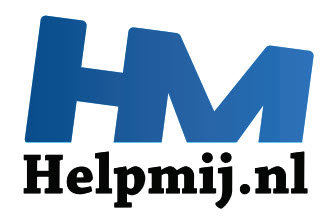Och, ja. pfff...
Wat gaan ze doen? Iedereen die Kazaa, Gnutella, ... gebruikt in het cachot steken?? Daar is nu al geen plaats, lol.
Dit is echt weer zo'n typische "witch hunt", mensen proberen bang maken, dat is alles. ALS er al iets zou worden, is dat Kazaa neerhalen, en komen er weer 10 in de plaats.
Trouwens, sinds wanneer is het verboden om iets on-line te zetten. Dat is dus wel een grondwettelijk recht: vrije meningsuiting. Als er iets gedaan zou moeten worden in dat geval is de downloaders ervan straffen. Maar nee, dat is veel te moeilijk meneer.
Dit is trouwens al eens voor het "supreme court" in Amerika gekomen. Daar had iemand zelfs bedrijfsgeheimen on-line gezet. Eerst was hij beboet, maar in beroep is beslist dat het wel degelijk vrije meningsuiting is. Als je verder wilt lezen. Ik heb het hier bijgevoegd.
Ik ben al die zever over dat p2p gedoe, meer dan kotsbeu. Alsof ze godve....... niets anders te doen hebben: makers van virussen, hackers, mensen die naar kinderporno zoeken, .... en dan heb ik het alleen nog maar over internet crimes.
Artikel:Court Sets Precedent by Ruling That Trade Secrets Outweigh Free Speech
In a stunning blow to the US Constitutional guarantee of free
speech that has ramifications in the technical community, the
California Supreme Court ruled yesterday that protecting trade secrets
outweighs free speech. Specifically, the court found that an
individual can't post a corporation's trade secrets on the Internet,
as Andrew Bunner allegedly did when he posted code for the decss.exe
utility, Linux software that cracks the DVD Copy Control Association
(DVD-CCA) DVD-encryption algorithms. DeCSS lets Linux users play DVD
movies on their systems. But because DVD-CCA designed its encryption
algorithms to protect DVD content from theft, the association argued
that people can use the DeCSS code to extract that information
illegally.
"The court's decision confirms that the First Amendment is not a
shield to allow thieves to distribute stolen property," said a lawyer
representing the DVD-CCA. "And so it establishes an overall precedent
that an injunction on the basis of trade secrets is not a violation of
the First Amendment."
The court's decision, however, wasn't quite as sweeping as it
sounds at first. Bunner was originally named in an injunction as part
of a broad DVD-CCA lawsuit. A California appeals court overturned the
injunction when Bunner appealed, holding that protecting trade secrets
wasn't as important as "the First Amendment right to freedom of
speech." DVD-CCA then appealed the case to the California Supreme
Court. Yesterday, the court ruled that the order to remove the code
"does not violate the free speech clauses of the United States and
California constitutions." But the court also ordered the appeals
court to analyze whether the code is a protected trade secret, given
its widespread exposure on the Internet.
DVD-CCA accused Bunner of violating its trade secrets because he
posted the software on his Web site. Bunner, however, didn't write the
offending bit of code. A Norwegian teenager named Jon Johansen, who
was acquitted in Norway of charges that he stole trade secrets,
originally cracked the code. Bunner's lawyers argued that he was just
one of many people who posted the offending code and that he did so
after hundreds of thousands of other people had already posted it.
"This case is about the right of people to publish publicly available
information," said a lawyer who represented Bunner. "If a person finds
information on the Web and posts it, he or she should not be sued by a
big corporation."
